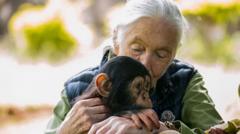Autism may have subtypes that are genetically distinct from each other
PositiveScience

Recent research suggests that autism may not be a single condition but could have distinct subtypes based on genetic differences and the age at which individuals are diagnosed. This finding is significant as it opens up new avenues for personalized treatment and understanding of autism, potentially leading to better outcomes for those affected.
— Curated by the World Pulse Now AI Editorial System






